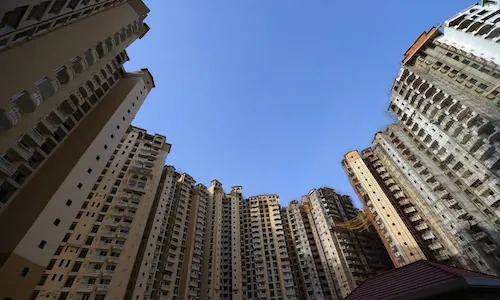With a substantial revival in consumer sentiment, the industry has witnessed an upward trend in sales across all cities. With an improved attractiveness for real estate as a preferred asset class, against other traditional alternatives, home buyers are looking at safeguarding their accumulated savings by investing in a more long-term asset.
The festive season saw more than just green shoots
Though the first quarter was owing to the lockdown and the economic slowdown, the third quarter led to a tremendous rebounding of sentiment among buyers that was held back in speculative times. Amid the onslaught of COVID-19, experts had speculated that this festive season would witnesses cautious and smarter buying than before. Nevertheless, real estate has bounced back in this festive season.
According to the Confederation of Real Estate Developers’ Association of India (CREDAI), there was an increase of 20-25 percent in sales this Diwali compared to the previous year. As a result, NCR witnessed an increase in sales by 38 percent QoQ, as compared to Q2 2020. According to a report by JLL, in Gurugram alone, the housing sales saw a spur of Rs 1,371 crore in the third quarter of 2020 in comparison to the second quarter that saw sales worth Rs 467 crore.
Festive offers are out there — even if not all consumers are ready
The series of economic incentives provided by the government such as the slashing of repo rate and the reverse repo rate, an extension of the deadline for the completion of real estate projects, increase in allocation to Prime Minister Awaas Yojana, and income tax relief played a vital role in boosting consumer sentiment. These measures, coupled with low-interest rates and high-value proportions in the form of flexible or staggered payment options, construction allowance, and enticing value-added offers attracted buyers. As the festive season began in the thick of the pandemic, consumers lapped up the opportunity to invest in projects available with a range of offers and incentives by developers.
The economic uncertainty, coupled with diminishing prospects in alternative asset classes, has given a fillip to the trend of real estate investment. The COVID-19 has also led to NRIs eyeing investment in the homeland amid a sense of security. Real estate has emerged as a viable option owing to its relative safety and an assurance of stable and regular returns.
What’s next for the sector?
The consolidation of the market is expected in favour of organised players. The COVID-19 pandemic has invariably renewed focus on developers with sound financial credentials that are expected to percolate further. The extensive leveraging of emerging technologies such as Virtual Reality and Augmented Reality will be the norm. This trend has begun to take shape since the lockdown. The ‘walk to work concept,’ preference for gated townships, and an opulent lifestyle will fuel the growth of luxury housing.
A moderate price increase of around 2 percent is expected in the prime residential market in 2021. The concept of ‘staycation’ and workcation’ will fuel the demand for weekend homes. Amid health, hygiene and wellness concerns, there would be an increased emphasis on robust facility management in residential and commercial offerings. As consumers evaluate purchases from a much more realistic angle, consumer-centricity and best-in-class services will be the key to a widening consumer base.
Riding on the wave of infrastructural developments, conducive policy landscape and initiatives by developers, real estate is poised to emerge strongly in the post-COVID-19 scenario.
(Edited by : Ajay Vaishnav)
First Published: Dec 10, 2020, 11:50 AM IST in CNBC TV18
